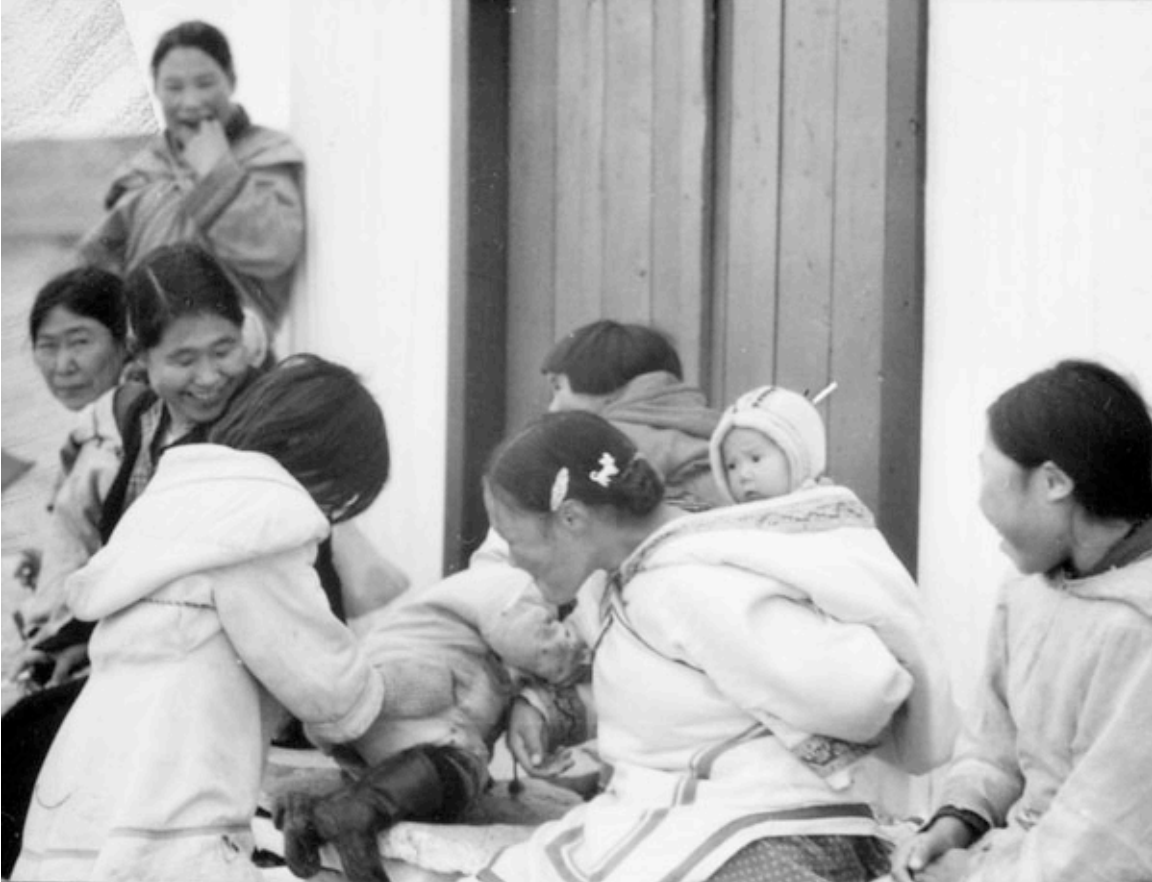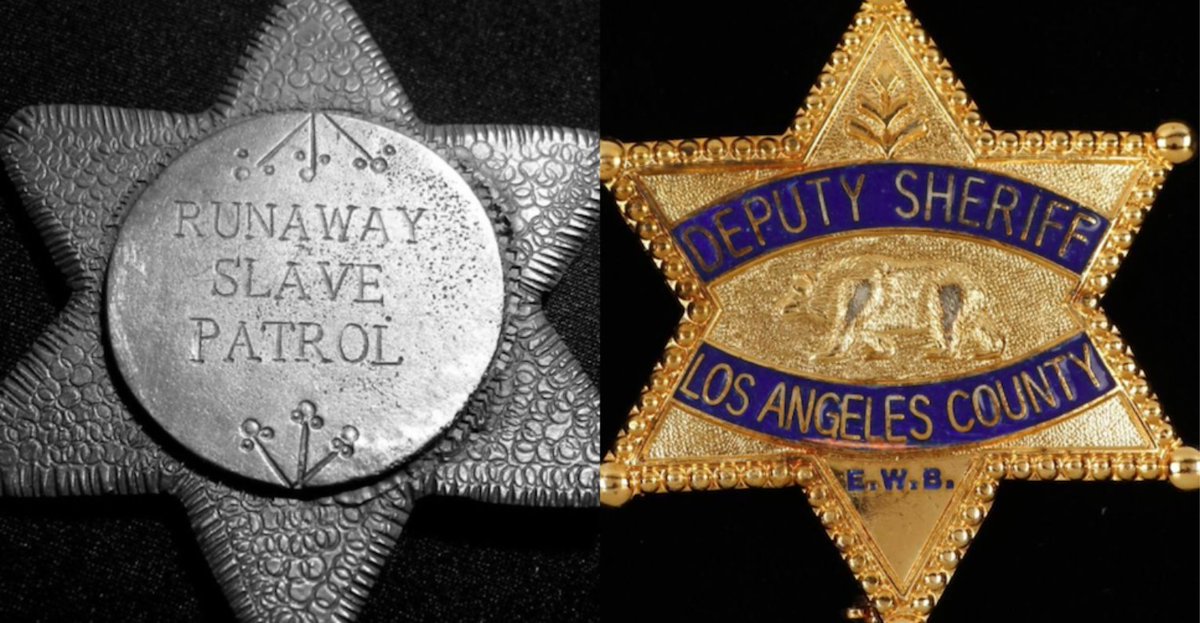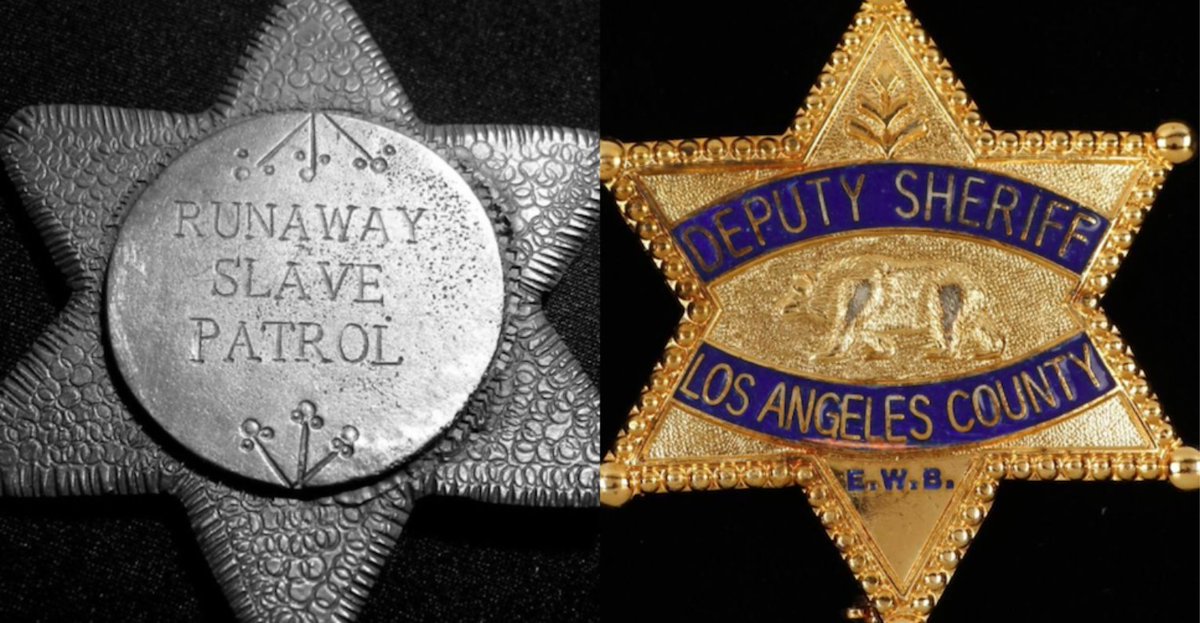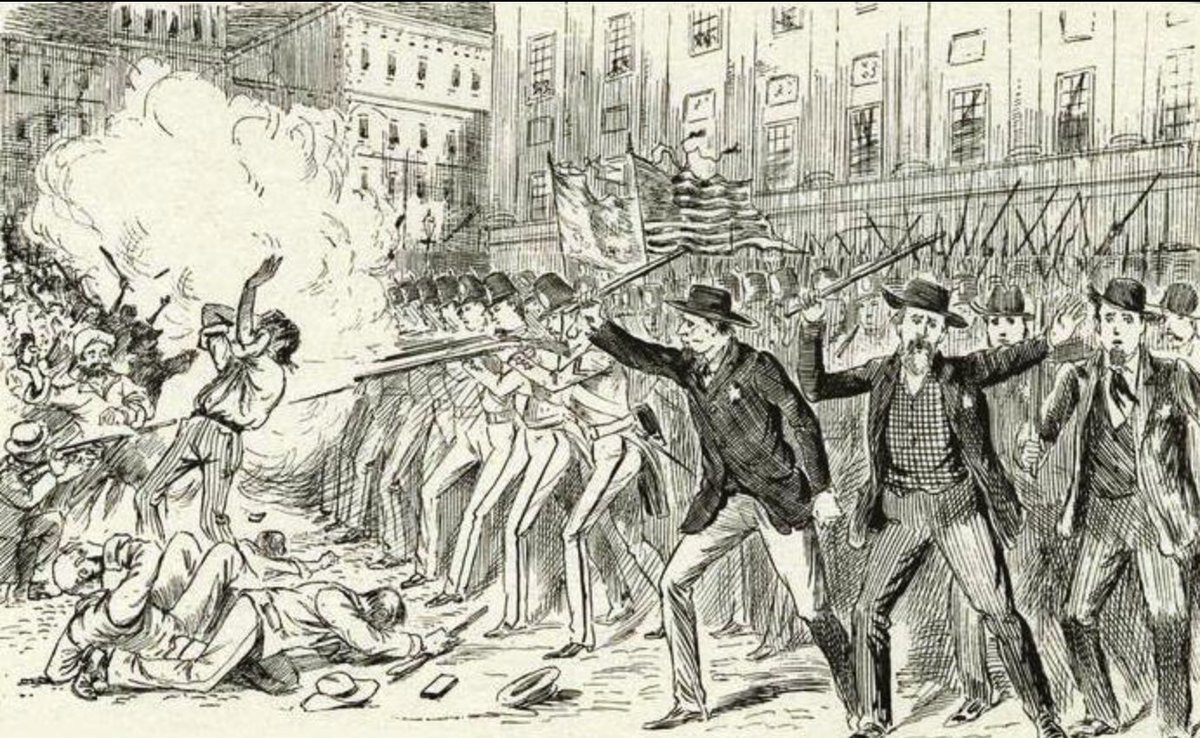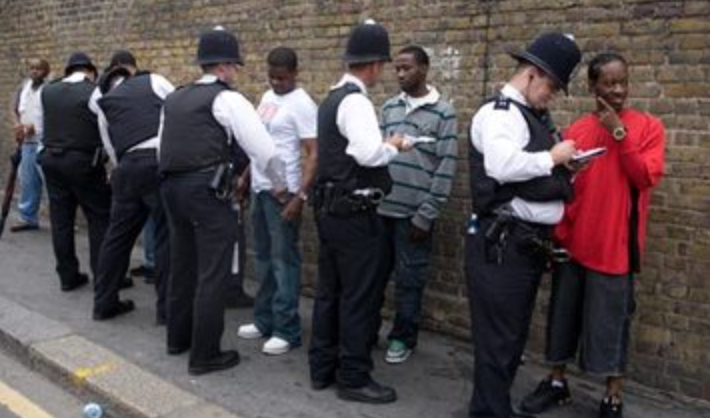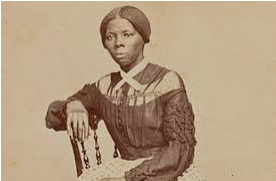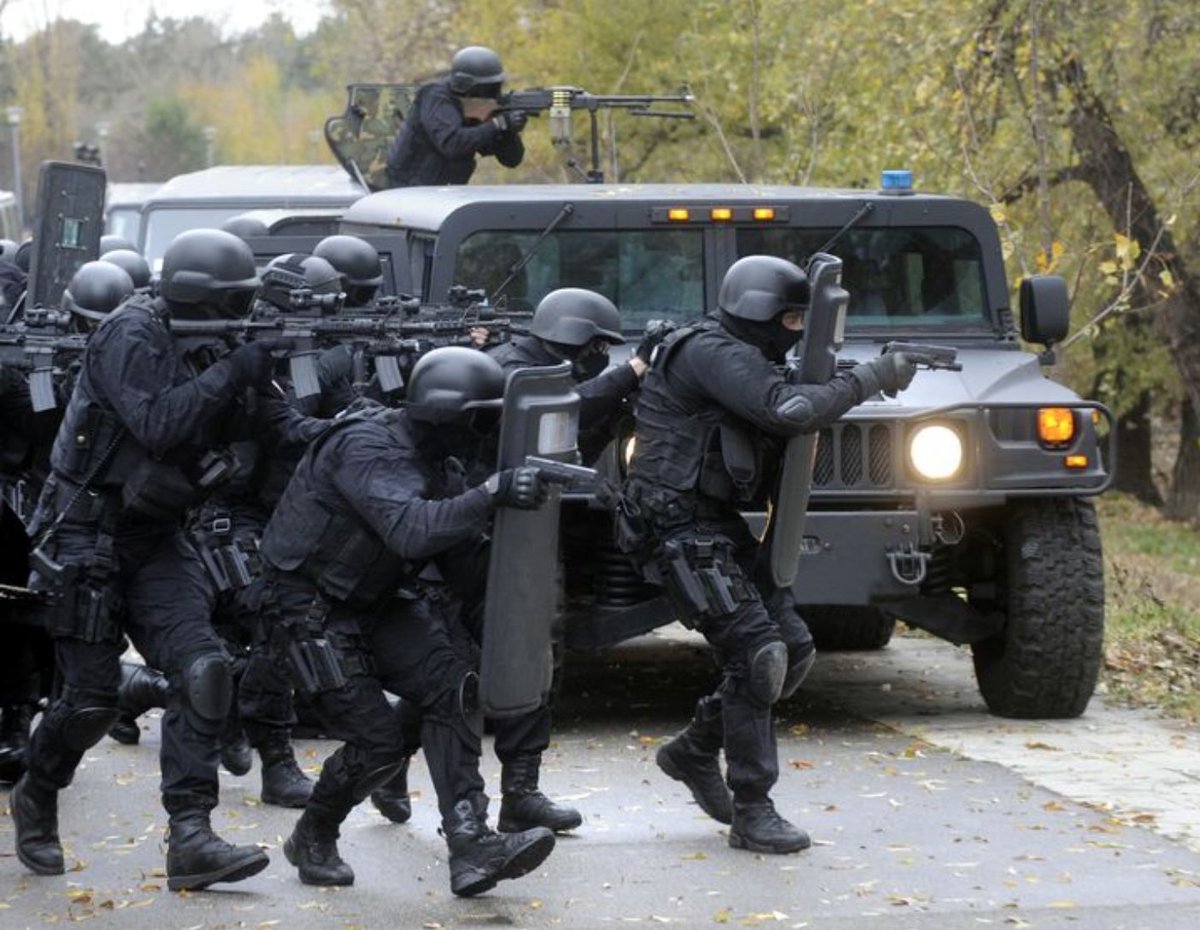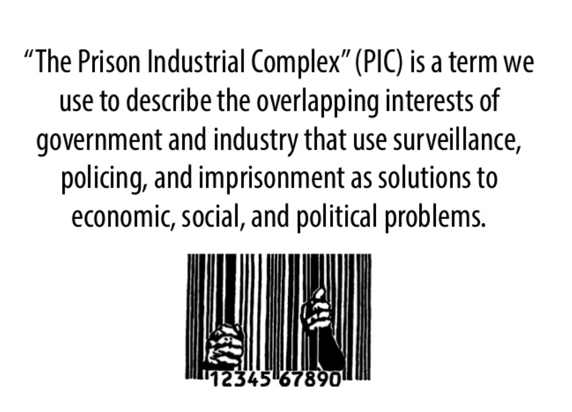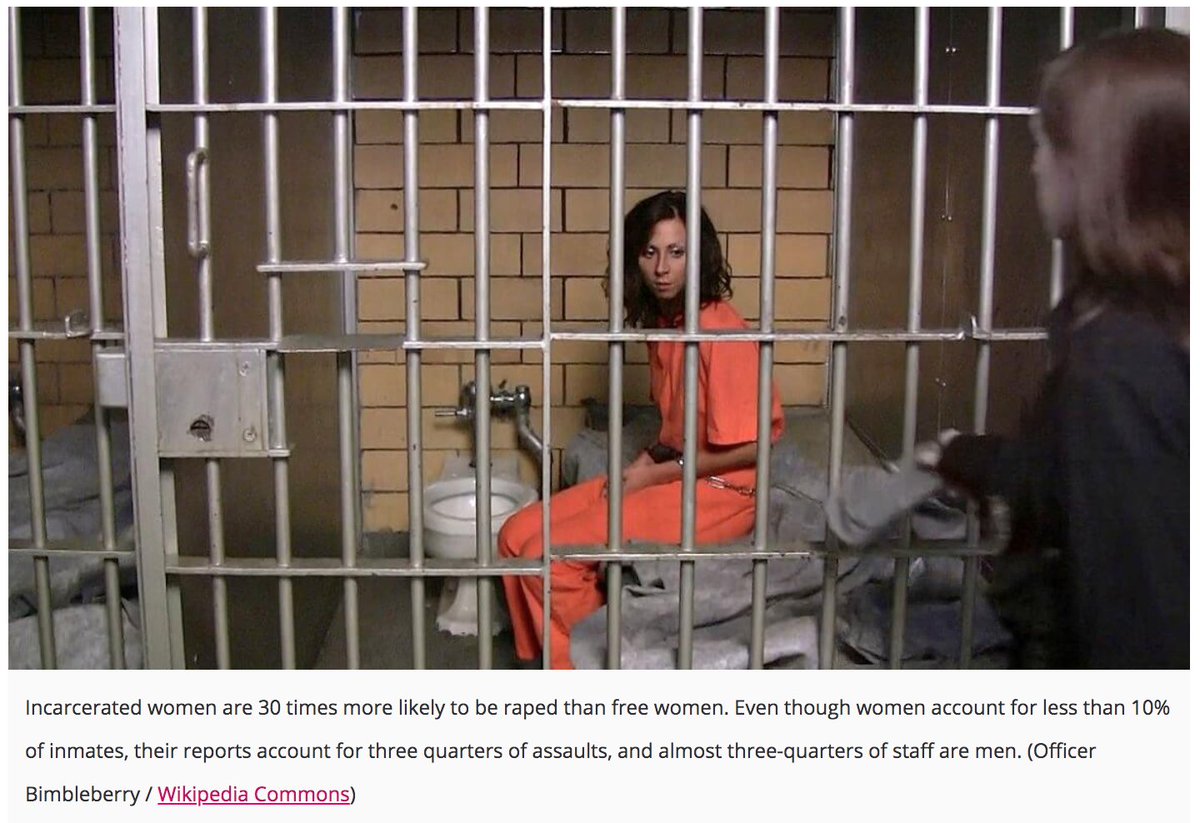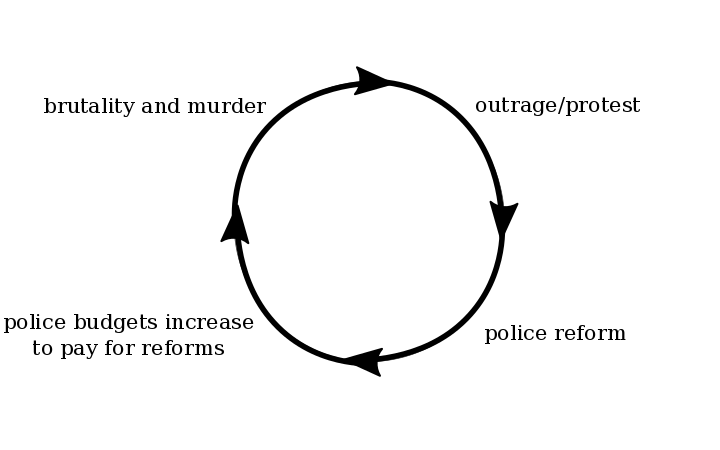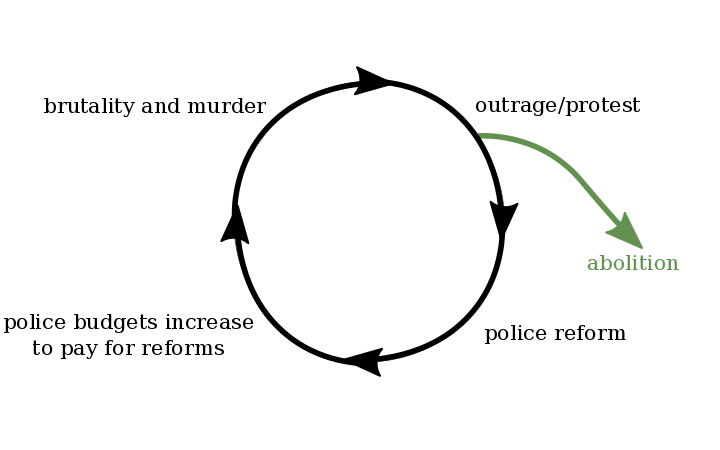ABOLITION 101: It& #39;s time for a long thread about abolition. It& #39;s still widely misunderstood.
Let& #39;s begin. Ask yourself:
1. Why do we have police, and more broadly, policing?
2. Why do we have prisons?
Let& #39;s begin. Ask yourself:
1. Why do we have police, and more broadly, policing?
2. Why do we have prisons?
The first thing I want to point out is the policing is not a given. You’re looking at photo of indigenous women from Igoolik, Nunavit. Before colonialization, the many indigenous nations of the Americas lived without police or prisons.
For most of you, policing might seem immutable. It feels like it has been around forever. But that isn’t true. Before the 1800s, there were no police forces like the ones we have now anywhere in the world.
So let’s orient ourselves and learn a bit about the history of policing
So let’s orient ourselves and learn a bit about the history of policing
In the US the development of police roughly follows two trajectories, depending on if you were in the north or the south. Altogether, it only took a few decades, roughly from 1825-1855, to crystallize the institution we know today.
The invention of policing was not a response to an increase in crime, and it didn’t really lead to any new methods for dealing with crime. The ruling elites who invented the police were actually responding to challenges posed by collective action: large, defiant crowds.
This means labour strikes and riots in the North, and the threat of slave insurrections in the south.
In the South, policing began with slave patrols. White southerners lived in constant fear of enslaved people rebelling against their inhumane treatment or escaping bondage and disrupting the unjust economic status quo. Salve patrols were created in response.
So, in the south, police were born of an institution whose entire mission was to prevent and brutally punish the so-called crime of people freeing themselves.
In the north industrialization and labour exploitation was booming and elite business owners were getting filthy rich. Initially, they hired private security to protect their wealth. Eventually, they realized it would be cheaper for them to have the city to pay for their security
To justify passing this cost on to taxpayers they claimed it was to impose ‘order’ on the working class. They criminalized all sorts of harmless behavior in the name of imposing ‘order’, such as drinking, prostitution, and being poor.
The elites also, unsurprisingly, used the police to suppress the labour movement. Their exorbitant profits were the result of horrific exploitation of the workers. Eg when workers tried to strike to eliminate child labour, the police would be deployed to violently suppress them
This includes shooting and killing striking workers.
So, in the north, police were borne of an institution whose entire mission was to protect property, not people – and in particular to protect the property and profits of the wealthy.
In both the north and the south people were being exploited – in the south more explicitly and egregiously. But in both cases the police were invented as a way to uphold that oppression for the benefit of wealthy people.
To paraphrase historian Simon Balto:
When police departments were first founded, they were they were not designed to promote some sort of public safety. They were designed with very specific political repressions in mind.
When police departments were first founded, they were they were not designed to promote some sort of public safety. They were designed with very specific political repressions in mind.
One of the great ironies of all of this is that policing was initially considered very un-American. Many citizens resisted the implementation of police departments: police were disparaged as antithetical to the American ideals of liberty and self-determination.
Policing, of course, doesn’t exist without some sort of criminal code – in other words, some laws which decide what is and is not criminal.
Angela Davis explains how the criminal code developed:
“In the south after slavery was abolished, plantation owners were left bereft of their free labour. So the governments of former slave states found ways to criminalize being Black, they called these the Black Codes."
“In the south after slavery was abolished, plantation owners were left bereft of their free labour. So the governments of former slave states found ways to criminalize being Black, they called these the Black Codes."
"Free Black people were arrested for actions such as vagrancy, absence from work, breach of job contracts, the possession of firearms, and insulting gestures or acts. Note that all of these things were only criminalized when the person was black. "
Because the 13th amendment abolished slavery except as a punishment for a crime, the Black Codes allowed slave states to regain their slave labour in the form of chain gangs."
"The new so-called criminal justice system made Black people the prime targets of a developing convict lease system.”
I really want to make this crystal clear: Southern criminal justice was developed explicitly as a way to exploit and control Black people.
I really want to make this crystal clear: Southern criminal justice was developed explicitly as a way to exploit and control Black people.
I hope at this point it is clear that policing was created to preserve racial and economic hierarchies. These hierarchies are also upheld by our state-supported punishment systems. Chain gangs are one part of this and slave labour of imprisoned people still exists.
Prisons are another part of this. As I’m sure you all know, in Europe capital and corporal punishment was the primary mode of controlling the poor. Prisons as we know them didn’t really exist.
There were places people were kept until their public execution or mutilation, but the concept of keeping someone in a cage for years as the punishment was borne from a reform movement.
Quakers who were horrified by the cruelty of capital and corporal punishment agitated for a more ‘humane’ form of punishment. The concept of imprisoning people was born of this reform movement.
It was also based on religious beliefs – namely, that in reproducing the solitude and ascetism of a monk’s life, criminals and deviants would have time to reflect and grow past their criminal tendencies.
I personally find it incredible that people who were supposedly horrified by the cruelty of the current modes of punishment decided that instead of doing away with punishment in general, which is inherently cruel, they would just ‘change’ which punishments were meted out.
During all of this, the genocide of Native Americans was happening, and the US& #39;s first prison was born when Puritans forced Indigenous peoples to renounce their traditions and culture. If they were refused, they were punished, sometimes by imprisonment. "To reflect", I& #39;m sure.
Everyone should read Alex Vitale. He summarizes:
"We should understand policing as the most coercive form of state power … and the reason is that policing has historically and inherently been at the root of reproducing fundamental inequalities of race, class, and immigration..."
"We should understand policing as the most coercive form of state power … and the reason is that policing has historically and inherently been at the root of reproducing fundamental inequalities of race, class, and immigration..."
So these are the roots of the police, prisons, and the criminal justice system.
Speaking of which: what is crime, anyways?
Crime is a social construct.
Speaking of which: what is crime, anyways?
Crime is a social construct.
Literally nothing is a ‘crime’ until a law is made saying that a particular act of behavior is one. Different societies have different laws, and laws – as we all know - change. What is considered a crime is relative to the time and the place.
Laws are arbitrary and often completely at odds with what most people would consider ‘moral’ – this is easy to realize when you consider that freeing enslaved people was once a crime. Harriet Tubman was a criminal in her time. She is a hero.
Here& #39;s a great example https://twitter.com/djmckenna00/status/1269219453637623808?s=20">https://twitter.com/djmckenna...
perfectly said: https://twitter.com/djmckenna00/status/1269579021148446721?s=20">https://twitter.com/djmckenna...
The point is that United States, on the federal, state, and municipal level has criminalized being Black, Indigenous, non-white and Poor. Meanwhile, it has refused to criminalize countless acts which do enormous harm. Crime is a social construct.
It’s really important to understand that many of the laws that make up the criminal code, and the ones that are missing, are often completely divergent from what most people would consider moral.
Because as soon as you understand this then you start to realize that police and prisons exist to enforce our immoral criminal code, using violence, and that we all pay tons of money to perpetuate this system.
Here comes the obvious and perfect example: the war on drugs.
We know that alcohol prohibition did not work, so why would the prohibition of other drugs?
The government is losing the war And all we have to show for it is billions of dollars wasted on violence and opression
We know that alcohol prohibition did not work, so why would the prohibition of other drugs?
The government is losing the war And all we have to show for it is billions of dollars wasted on violence and opression
the war on drugs has left us with bloated police budgets. And what is effectively an occupying army in every city in the form of the local SWAT team, which is ready to murder people for doing or selling drugs. Where is the & #39;justice& #39; in that?
This is a great article, you should read it: https://harpers.org/archive/2016/04/legalize-it-all/">https://harpers.org/archive/2...
The war on drugs has done nothing to help the real problem (debilitating addiction) - in fact, it only exacerbates it when use is criminalized. Some folks need help but what they get instead is a cage and systematic poverty.
All of this leads us to mass incarceration. The drug war, combined with a superabundance of laws which criminalize being poor, has led to the US having the largest prison population in the world.
The U.S. has 5% of the world’s population while it holds 25% of the world’s prisoners, and that’s *excluding* people under correctional supervision – probation, parole, ankle monitors, and house arrest.
The land of the free puts more people in cages than repressive dictatorships. According to prison abolitionist Ruth Wilson Gilmore, approximately 33% of the prison population are African American, 23% are Latino, and whites make up 30%.
The priorities of the government are completely upside down. In California, 23 prisons were built between 1982 and 2000, while only 1 university was built. Our priorities must be shifted.
Criminalizing communities who lack access to basic resources will not solve the problem of poverty, underemployment, and unemployment.
And what do we have to show for all this? Is the US much safer than all those other countries? Do we really need to keep doing this? Is this ok? The answer to the last three questions is no.
According to Berkeley researchers Franklin Zimring and Gordon Hawkins "Rates of common property crimes in the United States are comparable to those reported in many other Western industrial nations, but rates of lethal violence in the United States are much higher”.
Depending who you compare to, violent death happens 10 to 20 times more often in the US than elsewhere.
Why does this country puts so many people in cages when the crimes that everyone is the most scared about happen here more than in other developed nations?
Why does this country puts so many people in cages when the crimes that everyone is the most scared about happen here more than in other developed nations?
The prison industrial complex was first introduced by historian and activist Mike Davis. The prison industrial complex is the economy of prisons.
Not only does the prison industrial complex serve to warehouse human-beings, it’s also considered a space and place where corporations can make profits selling their products to prisons.
Think about how prisons charge exorbitant fees for phone calls, snacks, bus tickets to visit loved ones, lodging, food, and so on. Think about how slave labour is still legal in prisons.
And don& #39;t get confused and think that the problem is entirely due to private prisons. Angela Davis said: “The exploitation of prison labor by private corporations is one aspect among an array of relationships linking corporations, government, correctional communities, and media."
The PIC affects us in so many ways. It transfers technologies from the military to prisons and policing – expanding the profits private contractors make for these hyper-engineered tools of violence. It has performed medical research on imprisoned people. it devours public funds.
Angela Davis:
“Public prisons are thoroughly saturated with the profit-producing products and services of private corporations that the distinction between public and private prisons is not as meaningful as it might appear.
“Public prisons are thoroughly saturated with the profit-producing products and services of private corporations that the distinction between public and private prisons is not as meaningful as it might appear.
Campaigns against privatization that represent public prisons as an adequate alternative to private prisons are misleading.”
Not only are public prisons NOT divorced from the profit motive, but they are incredibly violent and do virtually nothing to make our society safer.
Not only are public prisons NOT divorced from the profit motive, but they are incredibly violent and do virtually nothing to make our society safer.
Imprisonment is violent. For example: incarcerated women are 30% more likely to be raped than free women, and their abuser is likely to be their jailer. Incarcerated women are routinely violated via strip and cavity searches, where guards put their hands right inside their vagina
Rape is so accepted as a consequence of being in prison that it is a common premise for lazy jokes. Prisoners have been repeatedly beaten and killed in prisons and the guards who commit these atrocities rarely face consequences, often keeping their jobs and positions
Imprisonment is violent. https://twitter.com/eveewing/status/1278417820980842499?s=20">https://twitter.com/eveewing/...
About 50,000 kids in the US are imprisoned. Their prisons range from detention centers to group homes. Black and Indigenous kids are vastly over-represented, while white kids are under-represented. Thousands of kids are held without even having had a trial.
Children as young as eight can still be charged as an adult, held in an adult jail, and sentenced to extreme sentences in an adult prison. 13 year olds have been sentenced to life in prison without the possibility of parole. The US is the only country in the world which does this
Seventy percent of those 14 or younger who are sentenced to die in prison are children of color. Many children who are prosecuted suffer from untreated mental illness, and instead of helping them we throw them in a cage and subject them to further trauma.
Here& #39;s the "justice" system at work: https://eji.org/cases/joe-sullivan/">https://eji.org/cases/joe...
This is not a broken system. This is the system working as intended. "Reforms" cannot fix this.
When the system works as intended, we have a system which relies almost exclusively on violence to oppress people. Here’s one example of a video which went viral recently. https://www.youtube.com/watch?reload=9&v=QFeewU0HhNE">https://www.youtube.com/watch...
I chose this video for a number of reasons, mostly because the victim is white. We have seen enough Black death and marginalized communities don& #39;t need to see any more. I also think it’s a perfect video to show how casual police cruelty is.
The inescapable conclusion is that policing and prisons are incredibly violent. So if you consider yourself a person who is & #39;concerned& #39; about violence, then you should be the most concerned with the people who have the monopoly on violence: police and prisons.
And in other countries, the US military.
Black & Indigenous people are over-represented in jails and crime statistics, simply because their very existence is harshly criminalized. Queer people and transgender people are similarly brutalized by police and prisons. Political activists are jailed or murdered by the state.
Folks who suffer from mental illness are over-represented in jails and prisons. And poor folks, whether they’re Black, Brown or white are brutalized by this system. If you are any combination of these things, the violence only compounds.
Non-serious, low-level offences such as “drug abuse violations” and “disorderly conduct” make up over 80% of arrests, while serious violent offences account for fewer than 5% of arrests. This system does almost nothing to keep us safe.
But it does effectively and continually brutalize millions of society’s most vulnerable people.
Do we really need prisons? Do we really need police? We have already seen that both institutions are borne from a desire to control and oppress marginalized groups. And we have seen that the ‘social order’ that they are enforcing is mostly unjust.
If you have accepted that this violence is unacceptable then the your next thought might be that we still need police and prisons. Because of ‘bad guys’. You might think that we just need to reform the police and the prisons so that the abuses stop.
The truth is that reform doesn’t work. Here I’ve made a little diagram of how this has happened since the invention of police and prisons. You’ve all witnessed this yourself – there is brutality and murder. People are outraged. They protest.
Some governments pass reform bills, for example requiring body cameras, sensitivity training, or banning some specific form of violence like chokeholds. All these reforms further bloat police budgets, at the cost of community programs which actively do prevent crime.
We have been trying police reform. For over a century. And it really and truly does not work.
Mariame Kaba says it best: https://www.nytimes.com/2020/06/12/opinion/sunday/floyd-abolish-defund-police.html">https://www.nytimes.com/2020/06/1...
Mariame Kaba says it best: https://www.nytimes.com/2020/06/12/opinion/sunday/floyd-abolish-defund-police.html">https://www.nytimes.com/2020/06/1...
Here& #39;s a perfect, horrific example: the man who does & #39;anti-bias& #39; trainings for San Jose police was shot directly in the groin at a protest - the officer aimed the rubber bullet gun directly at his groin, on purpose. He might never be able to have children. https://www.latimes.com/california/story/2020-06-06/community-organizer-shot-by-rubber-bullet-during-protest">https://www.latimes.com/californi...
Alex Vitale: “The Minneapolis police implemented trainings on implicit bias, mindfulness, deescalation, and crisis intervention; diversified the department’s leadership; created tighter use-of-force standards; adopted body cameras; initiated a series of police-community dialogues
... and enhanced early-warning systems to identify problem officers.” In 2015, the program cost $4.75 million for the police to use specific strategies to reduce implicit biases.
George Floyd is still dead.
George Floyd is still dead.
The same story goes for prisons. We have been reforming them since inception! And now we have the biggest prison population in the world.
The only way to truly end this horrific violence and injustice is to abolish police and the prison industrial complex. "The word abolition is purposely used to remind people of enslaved African Americans."
Angela Davis:
“We do this work to reimagine a different world where prisons will no longer exist. Where retributive justice will wither away and hold the police and prisons accountable for all the damage they have created in our communities. “
“We do this work to reimagine a different world where prisons will no longer exist. Where retributive justice will wither away and hold the police and prisons accountable for all the damage they have created in our communities. “
Angela Davis:
"Today, we know that this form of justice is actually an injustice. “
The only real justice we can have is to stop this cycle of violence and oppression. We must abolish police and the prison industrial complex.
"Today, we know that this form of justice is actually an injustice. “
The only real justice we can have is to stop this cycle of violence and oppression. We must abolish police and the prison industrial complex.
ok that was a super long thread. I& #39;ll do another thread later on what abolition actually looks like.

 Read on Twitter
Read on Twitter